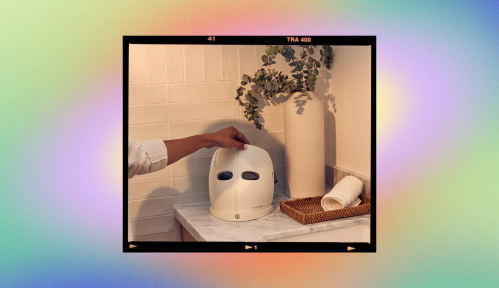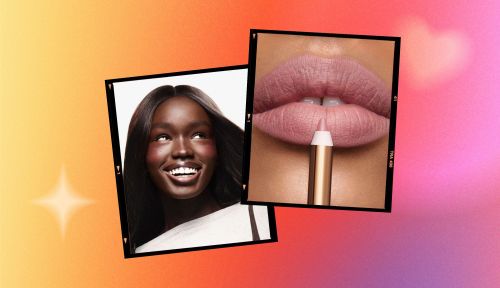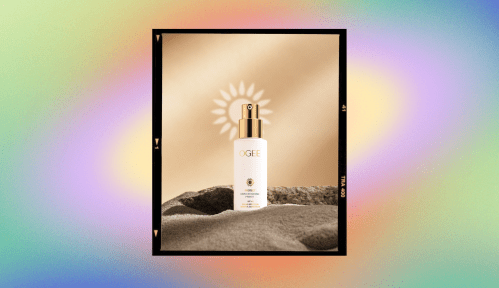Our editors independently select these products. Making a purchase through our links may earn Well+Good a commission
Can Brushing Your Hair Before You Shower *Really* Combat Hair Loss? Here’s What Pros Have To Say
TikTok may have you convinced that brushing your hair before a shower can combat hair loss—here's what pros have to say.
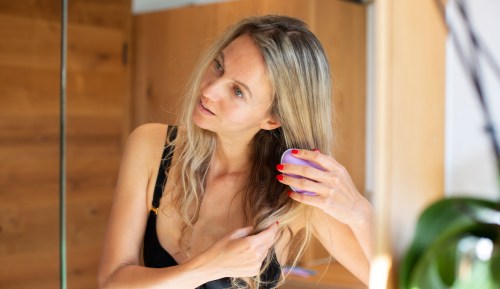
These days, anyone with a ring light and enough followers can dole out supposed “expert” advice online. Whether it be tips about managing fungal acne (which is not a medically recognized form of acne) or an explainer on rice water’s benefits for hair (which are actually very real), it can be hard to separate fact from fiction.
Experts in This Article
scientist, certified hair practitioner, and founder of the website Absolutely Everything Curly
Los Angeles-based internal medicine physician
board-certified dermatologist and founder of Lupo Center for Aesthetic and General Dermatology
board-certified hair restoration physician and plastic surgeon
board-certified dermatologist based in New York City
contemporary hair stylist and extension specialist at LRN Beauty in New York City
celebrity hairstylist and artistic director for Mizani
hairstylist and Mizani artist
certified trichologist
So hen we saw the age-old women’s magazine myth that brushing your hair before showering could potentially help combat hair loss resurfacing on TikTok, we knew better than to take it as gospel truth. Instead, we decided to do some of our own work and talk to a few pros.
Should you brush your hair before you shower?
If you’re buzzing to know if you should brush your hair before or after you shower, the answer really comes down to how tangled your hair is, explains Tippi Shorter, global artistic director at Mizani and celebrity hairstylist.
“The only time I detangle before shampooing is if there are knots present—you don’t want to start wetting hair that already has knots in it because that’s just going to create larger knots,” says Shorter. Instead of dampening your knots with water, Shorter recommends saturating them with a product to provide some slip. “The hair always needs to be slippery for it to be detangled with ease and without breakage,” she says.
Aside from when you’re managing knots, it’s really up to you whether you brush your hair before or after you shower. Often, it comes down to your hair type. Because hair is most fragile when wet, William Gaunitz, trichologist and hair loss specialist, recommends that those with straight to wavy hair brush their strands before they shower. If you have curly or coily hair dry, your best bet is to brush it while you’re in the shower with conditioner on your hair.
Additionally, you’ll want to make sure you’re using the best detangling brush for your hair type, whether that’s the best brush for fine hair or the best brush for curly hair.
“Detangling your hair should not be a painful experience,” says Nicolette Rauchut, a hairstylist at Lrn Beauty in New York City. “If your detangling moments are hurting your scalp, you may have a lot of tangles and snags, causing unwanted tension at the root. Your bristles also may be too stiff or the wrong material for you.”
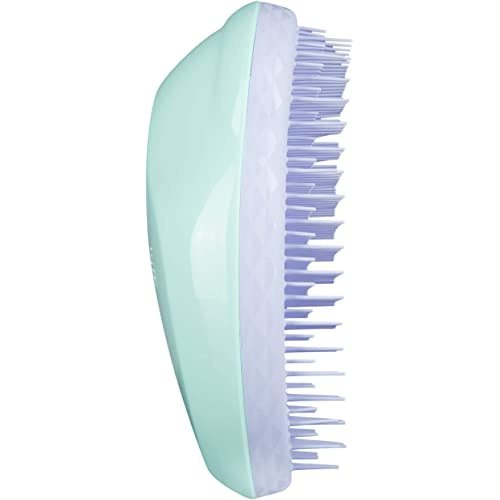
Tangle Teezer — $11.00+
Tangle Teezer makes a great range of detangling brushes that have flexible bristles so you don’t have to worry about ripping out knots while coming. The brushes are broken down by hair type, with options for tight coils and curls,thick and loose curls, straight to wavy hair, and fine and fragile hair.
How to stimulate hair growth with brushing
According to Shab Reslan, trichologist and healthy hair expert, frequent hair brushing and scalp massages can help increase circulation in the scalp and strengthen hair growth, but whether it happens pre- or post-shower isn’t particularly important. That’s because our blood carries nutrients. So when circulation is increased in the scalp, those nutrients are distributed throughout the scalp and the roots of the hair.
“Scalp circulation plays a big role in impacting hair health,” says Todd Edwards, a Mizani artist and hairstylist based in Atlanta. “Giving your scalp a daily massage or brushing your scalp every day is very important, this will get the blood flowing,” says Edwards. And according to Mary Lupo, MD, a board-certified dermatologist in New Orleans, “increased circulation seems to encourage hair growth.”
In lieu of (or, if it’s your thing, in addition to) brushing, the pros recommend a few other pre-shower practices to help stimulate hair growth. Gaunitz suggests simply massaging the scalp for two to three minutes to break up any calcification under the skin, or applying a little bit of castor oil directly to the scalp and letting it sit for 30 to 45 minutes before you shampoo to help pump more blood to the area.
Or, once you’re in the shower, Reslan recommends using a scalp massager while you let your conditioner sit, which will increase blood follicles to the particles while allowing extra time for the product to penetrate your strands.
Additional ways to stimulate hair growth beyond hair brushing
1. Scalp microneedling
“Microneedling is an aesthetic procedure in which miniature needles roll over the skin to penetrate the stratum corneum, or the outermost layer that contains dead skin cells,” says Neil Sadick, MD in New York City. “The minuscule wounds stimulate collagen production and allow deeper penetration and absorption of topical products.”
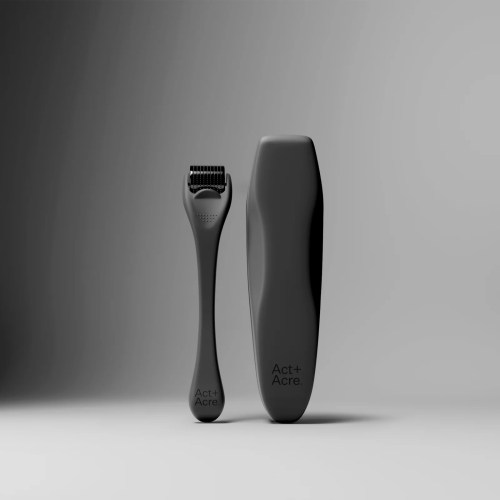
Act+Acre, Scalp Dermaroller — $46.00
This dermaroller features 540 high-strength medical-grade stainless steel needles to stimulate blood flow to the hair follicle and release growth factors.
2. LED therapy
Dr. Lupo explains that red light is a cellular stimulator for repair and helps to increase blood circulation and the spread of nourishing ingredients.
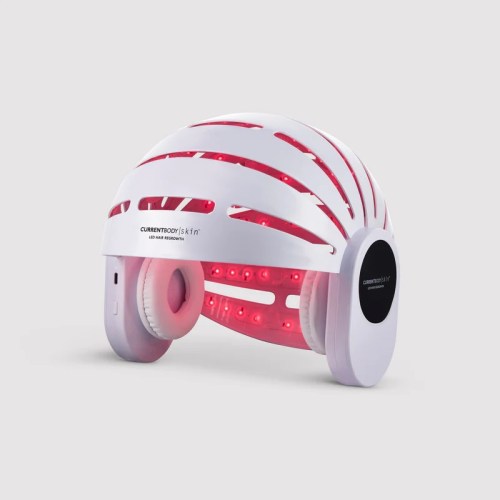
CurrentBody Skin, LED Hair Regrowth Device — $859.00
This FDA-Cleared device uses LED to stimulate follicles and increase blood flow for increased oxygen and nutrients. It includes 120 red LED lights as well as built-in Bluetooth headphones. Use it 10 minutes daily and look out for results in 16 weeks.
3. Minoxidil
Minoxidil, also known by the brand name Rogaine, is a drug that stimulates hair growth. “Hair growth and hair thickening is a long-term commitment,” says board-certified hair restoration physician and plastic surgeon Michael Wolfeld, MD. “Minoxidil is beneficial for genetic pattern hair loss, which is thinning hair.” Keep in mind that Minoxidil is a forever commitment—if you stop taking it, you will lose the hair you regrew.
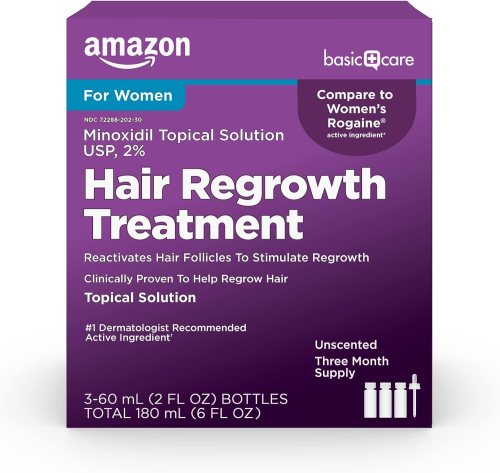
Amazon Basic Care, Minoxidil Topical Solution USP, 2% Hair Regrowth Treatment for Women — $36.00
This kit contains a three-month supply of Minoxidil solution, that’s meant to be applied twice daily for optimal results.
4. Stimulating ingredients
Scalp products that contain stimulating ingredients like caffeine, peppermint, and rosemary can encourage hair growth by dilating the blood vessels and allowing for that increased flow of nutrients
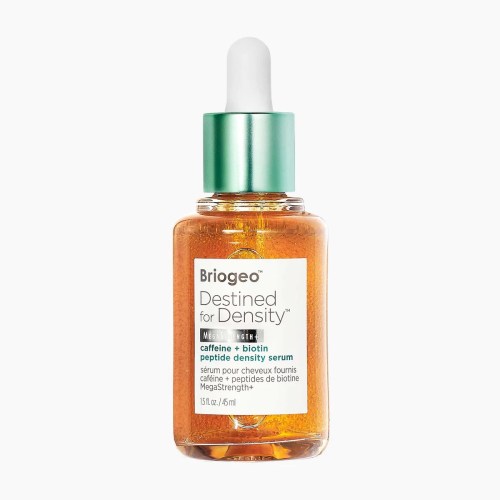
Briogeo, Destined for Density Caffeine + Biotin MegaStrength+ Peptide Density Serum — $57.00
This serum contains a scalp-stimulating blend of caffeine, CoQ10, and green coffee oil along with supportive copper peptides, and soothing zinc.
5. Hair wellness supplements
“Deficiencies in iron, zinc, and biotin, to name a few, have been associated with hair loss,” says Maria Marlowe, an NYC-based integrative nutrition health coach. “The good news is hair loss related to nutrient deficiencies generally isn’t permanent and can be rectified by adding in the nutrient.” You can visit a doctor to get blood work to determine if you’re experiencing a vitamin deficiency.
Beyond a nutrient deficiency, a general hair supplement won’t help much with the growth of new hair as it will help with making the hair you do have healthier. “Hair vitamins are going to address the hair shaft problems like the hair texture, brittleness, and dryness—they can actually make the hair enriched and shinier,” says Jessica Cho, MD, an integrative medicine doctor and hair restoration specialist.
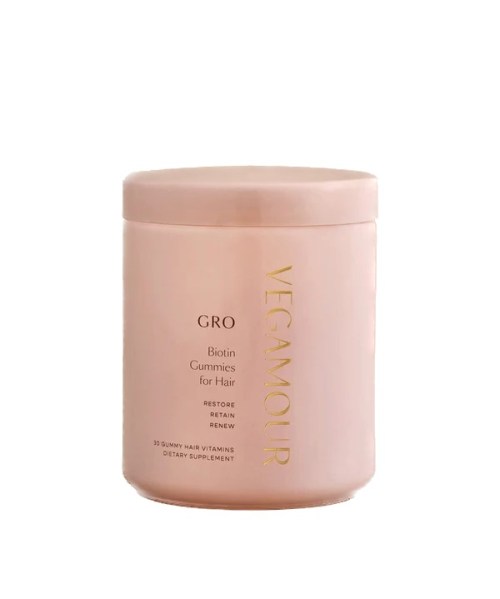
Vegamour, Gro Biotin Gummies — $36.00
These vegan, strawberry-flavored gummies contain biotin and folic acid as well as vitamins A, B-5, C, E , 6, and 12 to help neutralize follicle-damaging free radicals and maintain scalp wellness.
6. Visiting a board-certified dermatologist
While hair loss is totally normal (and very common), if you’ve noticed an uptick in the amount of hair that’s falling out, Gabby Longsworth, PhD, certified hair practitioner— suggests visiting a dermatologist or general practitioner to run some blood tests—certain nutritional deficiencies, diseases, stress, COVID-19, and other well-researched symptoms are known to cause hair loss. With all that in mind, it’s worth the reminder: Not everything you read online is the truth, so be sure to fact-check any “miracle” solutions before you waste your time on something that doesn’t work.
For more intel on dealing with hair loss check out the video below.
Sign up for the Well+Good SHOP Newsletter
Get exclusive deals on wellness, beauty, fitness, and food products that have been hand-picked by our editors.
Got it, you've been added to our email list.

